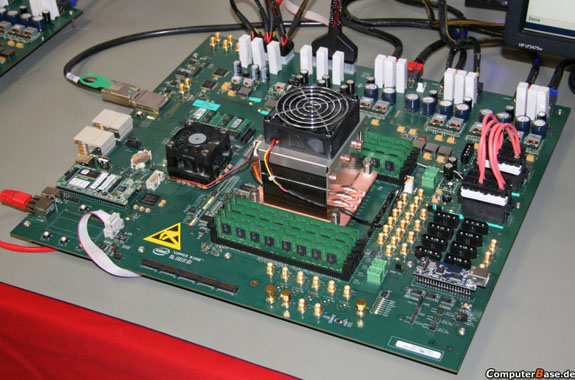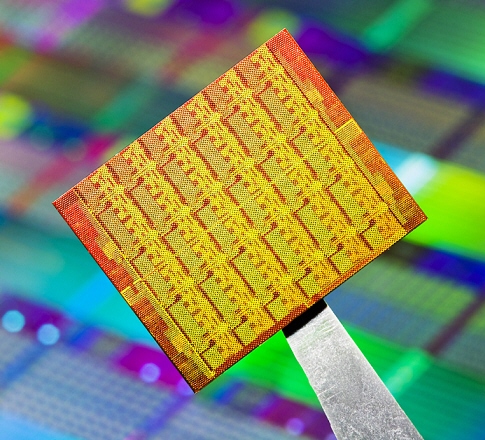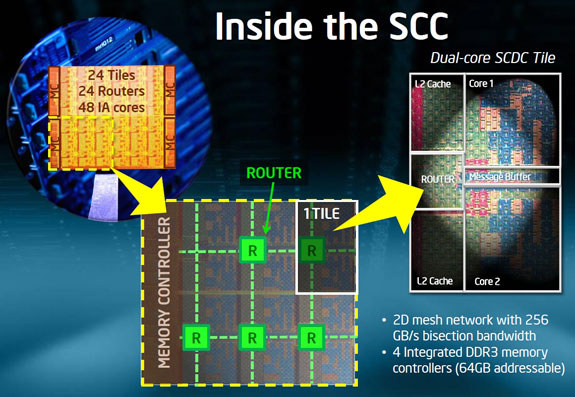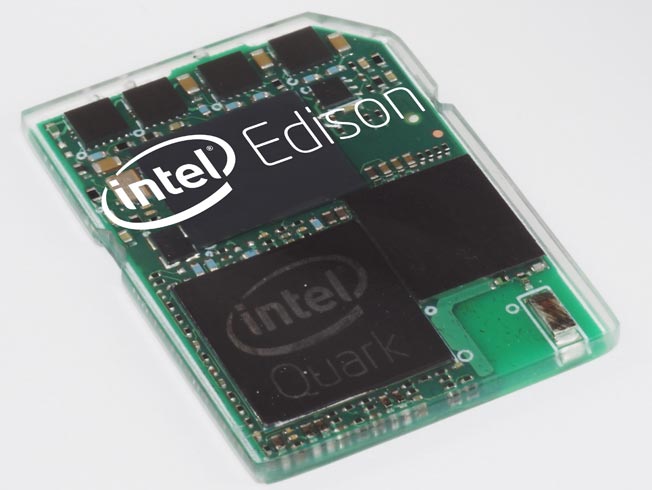
Intel Labs demonstrated an experimental, 48-core Intel processor, This chip is 10 to 20 times the processing power of today’s most popular Intel Core-branded processors. It also includes a high-speed on-chip network along with new power management techniques allow all 48 cores to operate extremely energy efficiently at as low as 25 watts, or at 125 watts at maximum performance.

Copper Ridge motherboard running the 48-core processor (Picture courtesy of Computerbase)
The long-term goal is to add incredible scaling features to human-machine interfaces.Cloud data centers are comprised of tens to thousands of computers connected by a physical cabled network, distributing large tasks and processing massive datasets in parallel. Intel’s new experimental research chip uses a similar approach, Just all the computers and networks are integrated on a piece of Intel 45nm, high‑k metal-gate silicon about the size of a postage stamp, dramatically reducing the amount of physical computers needed to create a cloud data center.
“With a chip like this, you could imagine a cloud datacenter of the future which will be an order of magnitude more energy efficient than what exists today, saving significant resources on space and power costs,” said Justin Rattner, head of Intel Labs and Intel’s Chief Technology Officer. “Over time, I expect these advanced concepts to find their way into mainstream devices, just as advanced automotive technology such as electronic engine control, air bags and anti-lock braking eventually found their way into all cars.”
off-chip system memory. Applications can also dynamically manage exactly which cores are to be used for a given task at a given time with required memory, matching the performance and energy needs to the demands of each.Cores can be turned on and off or change their performance levels, continuously adapting to use the minimum energy needed at a given moment.



Intel plans to build more than 100 experimental chips for use by many industrial and academic research collaborators around the world with the goal of developing programming models and softwares for future many-core processors.
“Microsoft is partnering with Intel to explore new hardware and software architectures supporting next-generation client plus cloud applications,” said Dan Reed, Microsoft’s corporate vice president of Extreme Computing. “Our early research with the single chip cloud computer prototype has already identified many opportunities in intelligent resource management, system software design, programming models and tools, and future application scenarios.”
This milestone represents the latest achievement from Intel’s Tera-scale Computing Research Program, aimed at breaking barriers to scaling future chips to 10s-100s of cores. It was co-created by Intel Labs at its Bangalore (India), Braunschweig (Germany) and Hillsboro, Ore. (U.S.) research centers. Details on the chip’s architecture and circuits are scheduled to be published in a paper at the International Solid State Circuits Conference in February.
